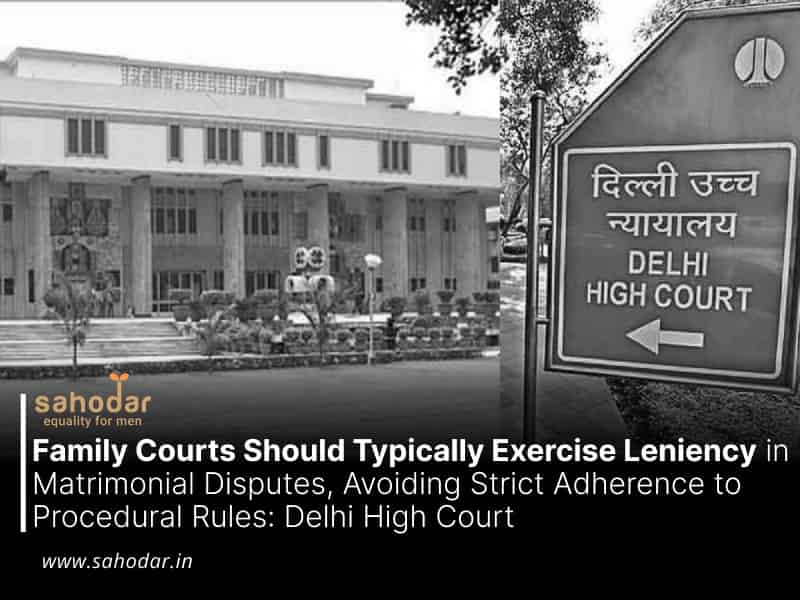The Delhi High Court, in a ruling on Tuesday, granted approval to a wife’s plea challenging the closure of her right to cross-examine her husband in divorce proceedings. The court emphasised the necessity for Family Courts to strike a delicate balance between expediting cases and ensuring a fair opportunity for each party to present their case.
Recognising the sensitive nature of matrimonial disputes, Justice Navin Chawla suggested that Family Courts should exhibit greater leniency than commercial disputes. Matrimonial matters involve relationships and thus demand a more sensitive approach from the court.
After scrutinising the case’s factual context, Justice Chawla concluded that the delay was not solely the petitioner’s fault. Given the matrimonial nature of the dispute, he asserted that the Family Court could have been more lenient. The court could have imposed certain conditions rather than closing the petitioner’s right to cross-examine.
The petitioner had filed the petition in response to the Family Court’s orders, which had closed her right to cross-examine her husband and other witnesses. She argued that the delay in cross-examination was due to various factors, including the impact of the COVID-19 pandemic, her children’s exams, her father’s heart attack, and difficulty in noting the correct hearing dates.
The court acknowledged that while the petitioner had taken adjournments and delayed cross-examining the respondent on some occasions, the primary reason for the delay was the COVID-19 pandemic. The Family Court’s attribution of the entire delay to the petitioner was deemed an error.
Regarding the second order, which discharged certain witnesses and closed the petitioner’s right to cross-examine them, Justice Chawla expressed that the Family Court should have granted the petitioner at least one opportunity to cross-examine these witnesses. The court criticised the lack of exploration of alternative options before closing the petitioner’s right.
Consequently, the Delhi High Court allowed the petitioner to cross-examine her husband and other witnesses with the condition of a cost deposit. Justice Chawla, however, cautioned that the petitioner would not be entitled to further indulgence from either the Family Court or the High Court.

